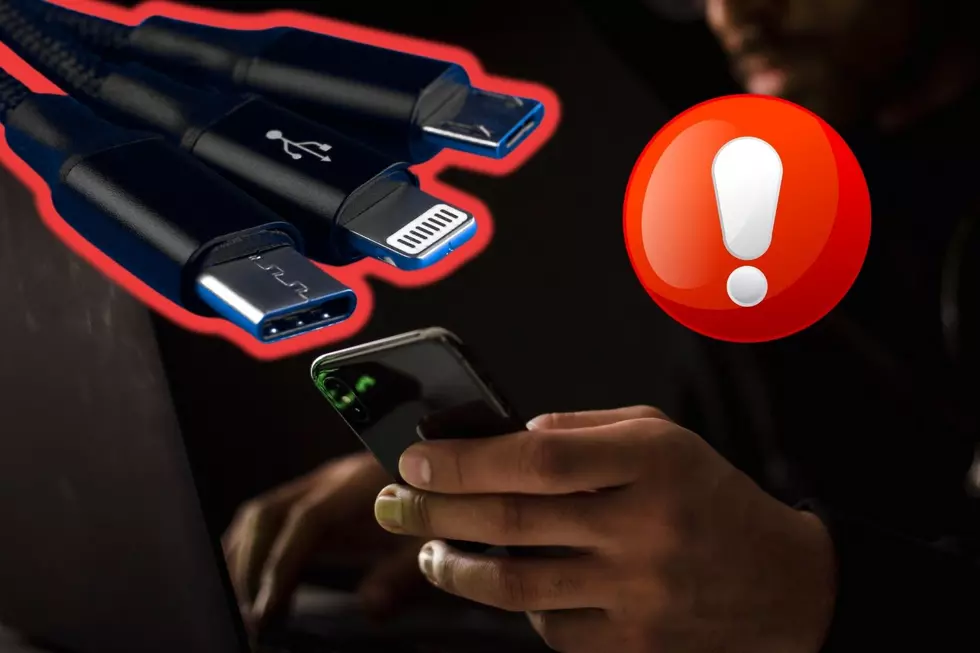
Watch out! Absolutely never do this with your phone while in public
“Juice jacking.” No, it’s not a trendy cleanse among the gym-loving crowd.
It’s a snappy term for hackers loading malware onto public USB charging stations — which could then force access to a user’s electronic devices while they are being charged.
Such public charging ports are often installed as a convenience at airports and hotels — even in shopping malls.
The Federal Communications Commission shared an update on the potential risk last spring.
Malware shared through a corrupted USB port can lock a device or export personal data and passwords directly to the individual who installed it.
Criminals could then sell or use the sensitive information to access online accounts.
The FCC said it was “not aware of any confirmed instances of it happening,” as of last year, but the commission still shared some tips for cyber safety.
Using AC power outlets can help you avoid any potential risks, so be sure to bring an AC, car chargers and personal USB cables when traveling.
Carry an external battery, also called a power bank.
Newer models offer a three-in-one design. Anker sells a 3-in-1 power bank with a USB-C port, integrated USB-C cable and a foldable AC plug.
Consider carrying a charging-only cable, which prevents data from sending or receiving while charging, from a trusted supplier. StarTech makes a charging-only cable or an adapter, each for under $15.
If you plug your device into a USB port and a prompt appears asking you to select "share data" or “trust this computer” or “charge only,” always select “charge only.”
Public WiFi networks are another way that cybercriminals target travelers, which the FCC also offers tips on using.
Report a correction 👈 | 👉 Contact our newsroom
LOOK: Most common domestic destinations from Atlantic City International Airport
Gallery Credit: Stacker
LOOK: Here are the 50 best beach towns in America
Gallery Credit: Keri Wiginton
LOOK: Most common domestic destinations from Trenton Mercer Airport
Gallery Credit: Stacker
More From New Jersey 101.5 FM









